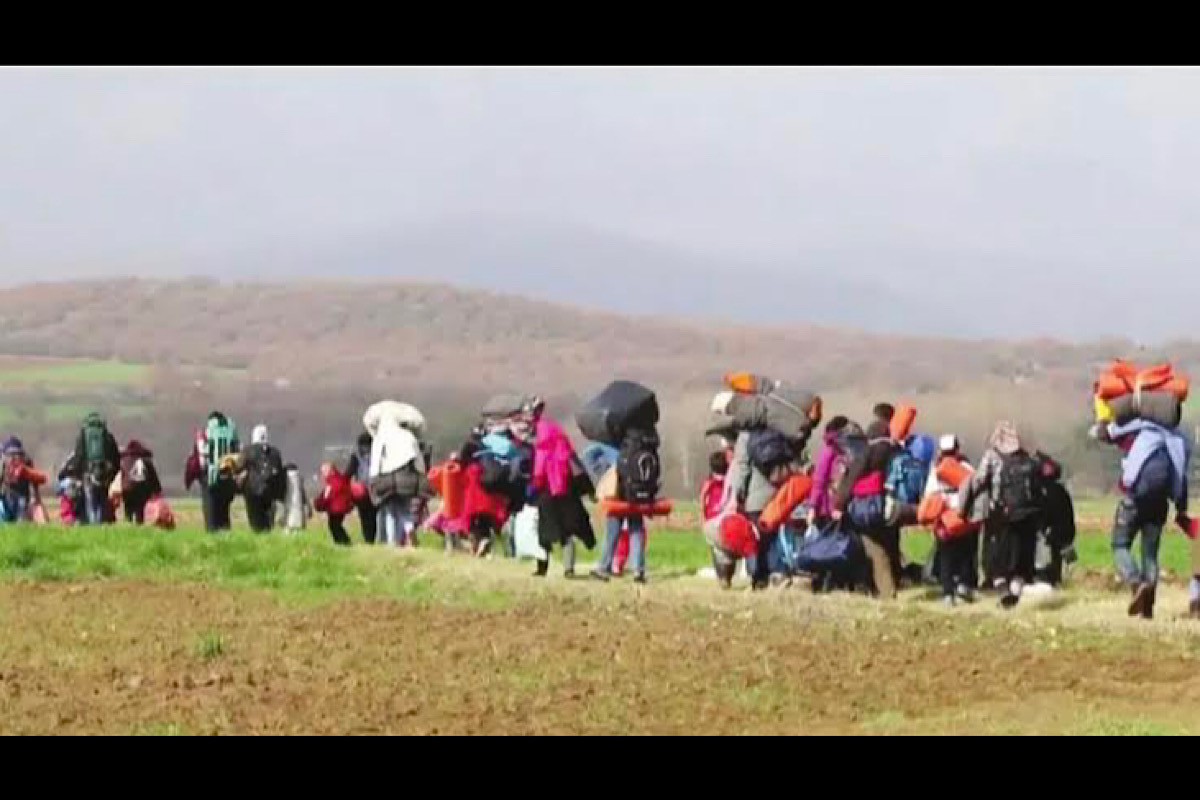Mobility is normal human behavior and a global phenomenon. Our ancestors in the prehistoric era were hunters-gatherers. They were constantly on the move in search of food and shelter. Floods, storms, earthquakes too compelled them to move from one place to the other.
Agriculture changed life, and man started to settle at a place. About 96.5 per cent of the global population today lives in countries where they were born. But there are 3.5 per cent who reside in other countries.
Advertisement
An estimated 150 million people, about 2.5 per cent of the world population, lived outside their countries in 2000. This figure has increased to 281 million in 2020. An estimated 47 countries are involved in such migration either as host or destination or as both host and destination countries. This migration is quite normal considering the global history of mobility of mankind and global economic development. There are people who want a better living, and they try to find better opportunities. They look up to developed countries for better economic well being. Economic globalization has an impact on lawful migration. Global corporations need a labour force and for this exodus of labour happens from less developed countries to developed ones. This is the pull effect. But there has been a significant change in the dynamics of migration during the last two decades.
The world has been witnessing a surge in forced migration worldwide. The number of forced displacements was 33.9 million in 1997 and increased to 65.6 million in 2016. The period between 2012 and 2015 witnessed a large number of people being forced to flee their countries due to conflict. Gallup World Poll Surveys indicate that a large number of the world population – about 750 million or 15 per cent – between 2015 and 2017 desired to move out of their countries and migrate if they had an opportunity.
But actual migration was dramatically low, about 0.4 per cent of world population. This indicates a good number of people on earth are living in circumstances which are not conducive or not as per their desire. Conflict is a major reason for people to take drastic decisions about their life and family. People want to flee from countries riddled with conflict, war, civil war and in some cases to avoid ethnic cleansing.
The last few years have seen huge unauthorised exodus of human beings largely to the US and European countries. People from conflict, war-laden countries have fled in large numbers, sometimes in caravans of thousands of people, crossing oceans in flimsy, over-crowded boats or scaling mountains and walls.
Most of these journeys are dreadful, uncertain, arduous and often at the risk of life. But these people dared to move out of their homeland to escape humiliation, starvation and even to avoid death. Yet estimates show that more than 46,000 migrants have died during journeys since 2000. This situation has emerged mainly due to conflicts in countries where either democracy never prevailed or where democracy prevailed but could not sustain for long.
Either the military or militants wanted to grab the power to rule the nation. The political situation made a shambles of the economy of these countries. Due to globalization, the economic supremacy has gradually shifted from the West to the East. This has kick-started the second cold war, the symptoms of which are now visible quite prominently. The future is obviously uncertain and unpredictable. Protectionism in nation states’ economies has been a new trend. Gone are the days of economic globalization, which taught us integration and peaceful coexistence. New fashionable terms such as ‘decoupling’ and ‘de-risking’ of economies are now in vogue. Some leading countries are contemplating decoupling their economies from other countries.
They want separation in some domains and cooperation in others. But this will certainly unravel the success of decades’ long economic globalization and peace. The greed to enjoy power to rule the globe has not dwindled among super powers. The newly added players in the game are the few big business powers who now flex their money power, and show their intention to rule over the world. So conflict is still alive and leading us to uncertainty and global economic disorder, while causing tremendous hardship to millions. The small countries will be in the crossfire, ravaged by recession, astronomical inflation and impossible debt. Good citizens shall try to flee their homeland to escape devastation.
The World Migration Report 2020 published by the UN has written: “Times have changed, dramatically so. Migration is now a top-tier political issue interconnected to human rights, development, and geopolitics at national, regional and international levels”. That is altogether a new pattern.
(The writer, a Cost Accountant, works for a public-sector power utility. The views expressed are personal.)











